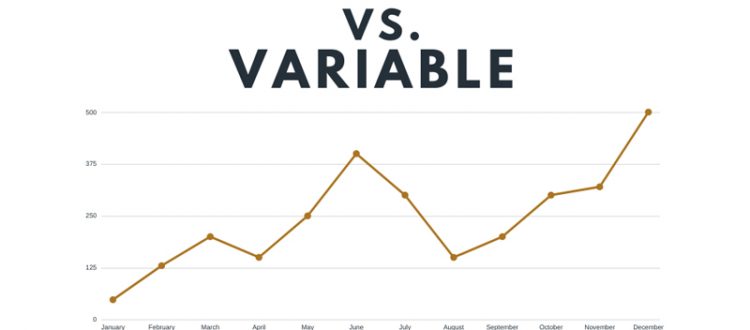Fixed vs. Variable Rate Mortgages!
If you are new to the world of mortgages, you probably have a lot of questions – such as whether to choose a fixed-rate mortgage or variable -rate mortgage. Even experienced home owners can sometimes struggle with this, and may wonder if they made the right choice or if they should switch.
Before we get to that, let me explain the differences between fixed and variable-rate mortgages. A fixed-rate mortgage is just that – a fixed amount of interest that you would pay for the term of the mortgage. A variable-rate, on the other hand, is based off of the current Prime Rate, and can fluctuate depending on the markets. Fixed rates are typically tied to the world economy where the variable rate is linked to the Canadian economy.
Why Consider a Fixed-Rate Mortgage?
First-time home buyers typically love the stability of a fixed rate when just entering the mortgage space. The pros of this type of mortgage rate is that your payments don’t change throughout the life of the term. However, should the Prime Rate drop, you won’t be able to take advantage of potential interest savings. Adversely if prime increases your fixed rate and payment are protected against the hike.
Why Consider a Variable-Rate Mortgage?
Variable-rate mortgages are based on the Prime Rate in Canada. This means that the amount of interest you pay on your mortgage could go up or down as the economy fluctuates. When considering a variable-rate mortgage, some individuals will set standard payments (based on the same mortgage at a fixed-rate), this means that should Prime drop and interest rates lower, they are paying more to the principal as opposed to paying interest. If the rates go up, they simply pay more interest instead of direct to the principal loan. Other variable-rate mortgage holders will simply allow their payments to drop with Prime Rate decreases, or increase should the rate go up.
If you are presently considering converting your fixed-mortgage to a variable-rate mortgage, it is important to consider potential penalties. If you are currently up for renewal, you should have no issues with switching your mortgage, but it is always important to check your contract before making any changes which could “break” the mortgage. Penalties are determined differently depending on your current rate and term and the lender you signed with.
If the recent economic instability has you worried, and you want to change your variable-rate mortgage to a fixed one, the penalty will likely be equal to three months’ worth of interest payments. For those of you who are looking to take advantage of the decrease in interest rates, and want to switch your fixed-rate mortgage to a variable-rate one, you will likely be looking at an Interest Differential Penalty. Depending on your mortgage amount, this may be a small price to pay to achieve a lower interest rate and reduce your payments.
Regardless of whether you are leaning towards fixed or variable, or want to change your mortgage, it is always a good idea to review your mortgage contract and finances before making any changes. I would be more than happy to discuss your current financial situation and review all the options with you to ensure you are making the best choice for your future.
Let’s Connect and discuss your financial needs and how I can help you attain financial freedom!

